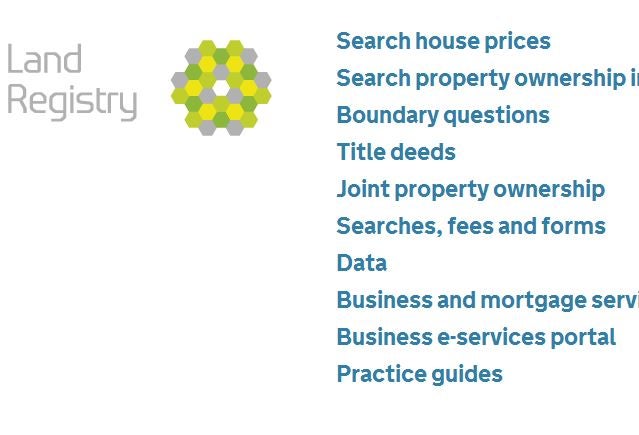
Proposals to privatise the UK Land Registry are a threat to investigative journalism, according to trade body the News Media Association.
The Government is currently consulting on plans to sell off the body which could see it be removed from Freedom of Information and give it no incentive to share its huge datasets on land values and ownership.
Land Registry data has been used by journalists to reveal the identities of the offshore companies that have bought up billions of pounds of UK property in recent decades.
In response to the official government consultation, the NMA warned that the sell-off plans do not explain how a privatised Land Registry could be required to continue to increase the information it puts into the public domain.
It also notes that the consultation does not rule out imposing fees and restrictive licences on future data releases.
NMA legal affairs advisor Lucy Gill said: “A privatised Land Registry would have a strong commercial incentive to do this and the chilling effect on journalists’ ability to access this information would be profound.
“Once privatised, the Land Registry would cease to be a public body and therefore could be removed from freedom of information legislation. This would put a large amount of important information beyond the press and the public’s right to know.”
The Open Data Institute has also voiced concern about the sell off: “At a time when government is trying to break down organisational silos and use data better within government it is strange to see it building barriers in our data infrastructure.”
The consultation closes on 26 May.
How journalists have used Land Registry Data (source NMA)
The Sunday Times used data released by the Land Registry to calculate that between 1999 and 2014, foreign companies bought £150bn of property in the UK. According to the paper’s analysis of Land Registry data, there were 96,440 property transactions by 35,922 companies registered by the Land Registry in the past 15 years.
The Liverpool Echo revealed that between 1999 and 2014, investors bought at least £3.75bn worth of property on Merseyside using offshore companies – including tax havens such as the Cayman Islands and Panama.
The Guardian has used Land Registry data to track the soaring cost of housing around the capital that is a entire generation out of the property market.
The Times found that property title fraud claims have hit a three-year high, resulting in £9m being paid out in compensation from the Land Registry’s indemnity fund. The research was based on FoI requests to the Land Registry.
Email pged@pressgazette.co.uk to point out mistakes, provide story tips or send in a letter for publication on our "Letters Page" blog
